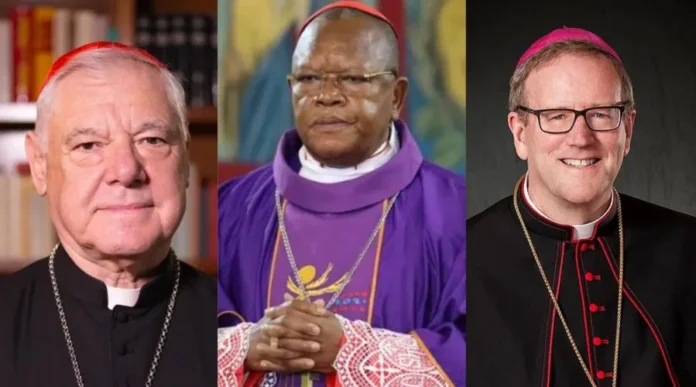Tension is deepening within the Catholic Church as Dutch bishops become the latest conference to reject a new provision by ordered by the Vatican for non-liturgical blessing of same-sex couples and those in irregular relationships.
The latest rejection follows that of the African bishops, who last week issued a collective “no” to the provision, saying that such blessings would cause confusion in Africa and will not be administered. It has also been flatly rejected by conferences of bishops in Hungary, Poland and Kazakhstan. Closer to home, Archbishop Gabriel Malzaire, has forbidden the blessing of “sinful unions” including common law unions, adulterous unions, polygamous unions or same- sex unions in the Archdiocese of Castries and the Diocese of Roseau.
A statement from the Bishops’ Conference of the Netherlands this week ruled out church blessings for same-sex couples but allowed for blessings of individuals.
“The Dutch bishops do not wish to deprive anyone of the support and power of God,” their statement said. “It is possible to say a prayer about individual believers who live in an irregular relationship. What one asks for in prayer and how one prays are important. For someone living in an irregular or homosexual relationship, the ordained minister can say a simple prayer outside the context of a wedding celebration or prayer celebration. In this prayer, God can be asked for strength and assistance, invoking his Spirit, so that he/she understands God’s will for his/her life and can continue to grow.”
The statement went on to say, “This makes it clear in the chosen words that it is not a blessing or confirmation of an irregular relationship and it also avoids confusion with a marriage that, according to the Catholic Church, can only be concluded between a man and a woman. In this way, prayer can give the power to draw near to God and to live in accordance with his purposes for the creation of man and woman and of marriage.”
One of the Dutch bishops, Rob Mutsaerts, an auxiliary of the ‘s-Hertogenbosch diocese, went as far as describing the provision as a “cowardly document.”
“It is not about an expansion of the meaning of blessings, but a deliberate modification of what is sin,” he said.
According to the bishop, the new provision, Fudicia Supplicans, explains blessing in such a way that the meaning is not clear.
“Give ‘blessing’ a new meaning, and you can do anything with it. The magic word that is then easily pulled out is ‘pastoral’. A formal blessing is not allowed, the declaration says, but a spontaneous blessing is. That is ‘pastoral,” he said. “How often the word ‘pastoral’ is used to
set aside the Magisterium, to set doctrine and life in opposition to each other, and then to condone life that is at odds with doctrine. Pastoral care is no longer soul care – it has become soulless. Doctrine is set aside.”
The push back to the new policy by many bishops, either individually or through conferences, is extraordinary for the Catholic Church. It is rare or unusual for entire bishop conferences to publicly voice dissent to a Vatican policy. It shows how polarizing the subject matter is and how Pope Francis’s years of effort to make the church a more welcoming place for the LGBTQ+ community continues to ignite resistance
among traditionalist and conservative Catholic leaders.
This is despite the fact that Fudicia Supplicans, did not instruct bishops to allow blessings of same-sex couples but merely provided guidance on how they could be done if people requested them. It said that blessings can be offered to people in same-sex relationships if they are not confused with the ritual of marriage, while reaffirming that marriage is a lifelong union only between a man and a woman.
The strongest reaction came from Africa, home to 265 million Catholics, or nearly a quarter of the world’s 1.3 billion Catholics. Bishops in Zambia said same-sex couple blessings were “not for implementation in Zambia,” while those in Malawi said “blessings of any kind” for “same-sex unions of any kind” would not be permitted.
Bishops in Nigeria, home to about 30 million Catholics, followed along the same line.
“The Catholic Bishops Conference of Nigeria assures the entire People of God that the teaching of the Catholic Church on marriage remains the same,” the bishops said in a statement. “There is, therefore, no possibility in the Church of blessing same-sex unions and activities.”
There has been opposition to the new provision from individual bishops in France, Peru, Uruguay, Brazil and Switzerland and the United States. It has been accepted by bishops without criticism in Ireland, Hong Kong, India, Portugal, Germany, Croatia, Belgium and
Austria.














